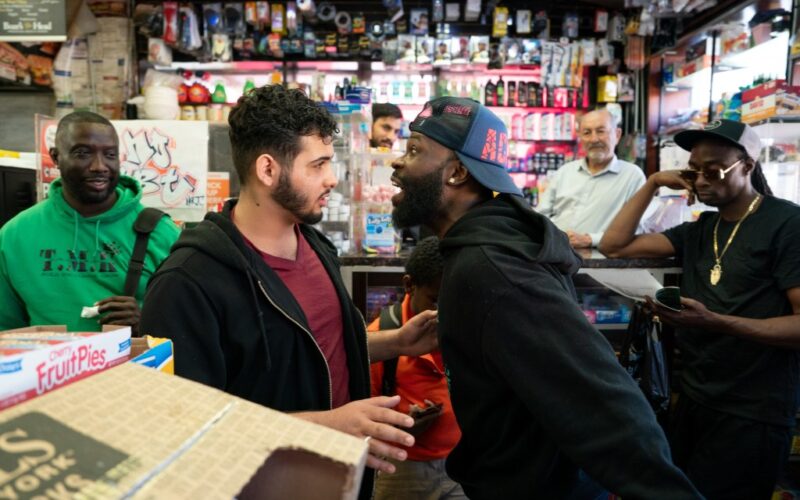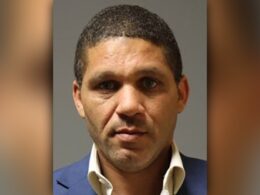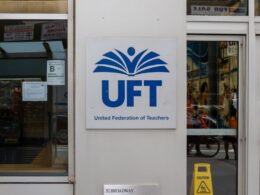Aaron Jones stumbled into the Bronx bodega and began flinging bags of potato chips and pretzels to the ground.
“Don’t touch me!” he yelled three times as a worker, Jabar Almontaser, approached. “Get outta my face! Get outta my face!”
“It’s all right,” Almontaser, 19, assured him while being careful not to make physical contact with Jones. “Take it easy, man.”
Jones turned around and left empty-handed, vowing with an expletive never to return.
Crisis averted.
In real life, the encounter could have spun off in a number of different directions including a robbery, vigilante justice or a police response.
But this was for show, de-escalation training for bodega workers held not in an auditorium or sterile conference room but inside Moe’s Organic Grocery at E. 180th St. and Crotona Ave. as customers stepped in and out. Most customers were too busy to stop and watch but some were interested enough to observe and even chime in.

“Trained, Not Armed” is a pilot program run by the Mayor’s Office For Criminal Justice, which believes bodegas are the ideal location to reach people often left out of the public safety conversation like minority merchants and workers, most of them immigrants, many who don’t speak English. The program also hopes to engage bodega customers and empower both sides with the tools to work past language and cultural barriers and diffuse tense situations.
Jones, co-founder of the Community Changing Fund, which works in various communities to stem the tide of violence, said Almontaser took the right steps during the role play, understanding he was dealing with someone in distress and lowering the temperature by speaking softly instead of cursing him out or forcefully ejecting him from the store.
“We have to be able to understand each other,” Jones said. “We want to deal with things before it gets to where police have to be called.”

Almontaser said the exercise is part of the never-ending process of learning about his customers. He’s Bronx-born and his dad, who owns Moe’s, hails from Yemen and speaks English as a second language.
The Yemeni-American Merchant Association is working with City Hall on the initiative, though the Almontasers have also done outreach on their own, most recently with a bacon, egg and cheese sandwich giveaway.
“I’ve changed the way I see people,” Jabar Almontaser said. “I look at them as family and treat them with respect.”
The de-escalation pilot started recently and is proceeding slowly in the Bronx and Brooklyn, with a handful of de-escalation trainings thus far but plans to expand it.
It comes at a time when bodegas are in the news, many owners still feeling the effects of a shoplifting surge that started at the onset of the COVID pandemic as well as a number of high-profile violent crimes.

Earlier this month, in the wake of two bodega murders, Mayor Adams announced an initative that will fund panic buttons for 500 bodegas.
Jones said that as bodega workers become more engaged with the community — and residents see them as a true part of their community — there will be less of a need to call police, thus sparing someone who is often mentally ill an arrest that does little to solve the person’s underlying issues.
Still, he acknowledges police will always be part of the equation when there is violence.
Almontaser was in a precarious position recently with a customer who came in, all smiles, saying he had finished work and was going to see his kids.

“He bought something and had very pos energy,” Almontaser said. “But after 15 minutes he comes back in with energy completely opposite, off the charts. He flips the potato chips on the floor — and I’m confused.”
The man ordered a sandwich and snacks, then told Almontaser he wasn’t going to pay and that he was going to return later and kill him.
Almontaser kept his cool,
“I told him, ‘Dude, are you OK? You wanna talk about it?” Almontaser recalled. “He said he didn’t feel like talking, then he took the sandwich and left.”
“I wasn’t going to get stabbed over a sandwich,” he said. “I just let him go.”








